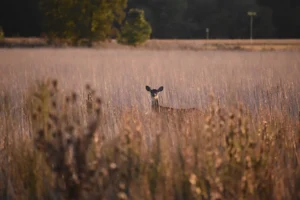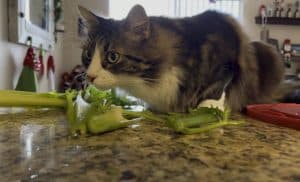Cats are known for their peculiar eating habits, including the occasional snack on ants. But why do cats eat ants? Let’s dig into the reasons behind this curious behavior.
Cats, being natural hunters, are attracted to small moving insects like ants due to their predatory instincts. The movement of ants triggers a cat’s hunting instincts, making them see the insects as potential prey.
The Curious Attraction to Ants
Cats have an intrinsic hunting instinct that drives them to chase and capture small creatures, including ants. The quick movements and tiny size of ants trigger a cat’s natural predatory instincts, enticing them to engage in this behavior. It’s like a small game of hide-and-seek for your feline friend!
Moreover, ants emit pheromones that can attract cats, piquing their curiosity and prompting them to investigate further. The fast-paced movements of ants appeal to a cat’s instinct to track and hunt prey, providing them with mental stimulation and entertainment.
While cats may not necessarily see ants as a primary food source, the act of hunting and capturing these insects satisfies their innate need for stalking and capturing prey. So, if you catch your cat snacking on ants, know that it’s all part of their natural instincts at play.
Nutritional Value of Ants
While ants may not be a staple in a cat’s diet, they can offer some nutritional benefits. Ants are rich in protein, which is essential for muscle growth and repair in cats. Additionally, ants contain various vitamins and minerals that can contribute to a balanced diet for your feline companion.
However, it’s vital to note that ants should only be consumed in moderation . While they can provide some nutritional value, they should not replace a cat’s regular diet. If you notice your cat frequently eating ants, it may be a sign that they are lacking certain nutrients in their diet, prompting them to seek out alternative sources.
Incorporating a balanced and complete diet for your cat is crucial to ensure they receive all the necessary nutrients for optimal health. While ants may offer some nutritional benefits, they should not be relied upon as a primary source of sustenance for your feline friend.
Instinctual Behavior
Cats eat ants as a result of their natural instincts. Through years of evolution, cats have developed a strong hunting instinct, making them eager to chase and catch small prey like ants. This behavior is rooted in their ancestors’ need to hunt for survival. So, when your kitty spots a tiny ant crawling around, it triggers their hunting instincts, and they can’t resist the urge to pounce and gobble it up.
Potential Dangers of Eating Ants
While it may seem harmless, there are potential risks associated with cats consuming ants. One major concern is that ants may come into contact with toxic substances, such as pesticides, which can be harmful to your furry friend if ingested. Additionally, some ants may carry diseases that can be transmitted to your cat through consumption. To ensure your cat’s safety, it’s best to prevent them from snacking on ants and other insects.
Tips:
- Regularly clean and inspect your home for ant infestations to reduce the chances of your cat encountering them.
- Consult your vet if you suspect your cat has ingested ants or is exhibiting any unusual symptoms.
Alternative Methods of Pest Control
If your cat has developed a habit of munching on ants, don’t worry – there are ways to discourage this behavior. To deter your feline friend from snacking on these bugs, try sprinkling cayenne pepper near entry points where ants might invade. Cats generally dislike the strong smell and taste of spicy substances, which can help keep them away from the ants. Alternatively, you can also set up physical barriers like diatomaceous earth or essential oil barriers to block the ants’ access points without harming your furry companion.
In addition to deterring your cat, it’s important to address the root of the problem by controlling the ant population in your home. Keep your house clean and free of crumbs to remove potential food sources for ants. Seal off entry points and eliminate any standing water that may attract them. Consider using natural ant repellents like lemon, vinegar, or peppermint oil around your home to deter ants without posing any risk to your cat’s health.
Behavioral Enrichment
Cats are natural hunters, and their instinct to chase and catch prey is deeply ingrained. To prevent your feline friend from targeting ants for entertainment, it’s essential to provide enriching activities that fulfill their hunting instincts. Set up interactive toys that mimic prey movements or engage them in hide-and-seek games to stimulate their mind and keep them entertained.
Furthermore, consider creating a vertical space for your cat to climb and explore, such as a cat tree or wall shelves. This allows them to satisfy their need for height and territorial control, reducing the likelihood of them seeking out ants for stimulation. Providing enriching treats like puzzle feeders or catnip toys can also keep them mentally engaged and less inclined to hunt insects for fun.
Remember, a stimulated and entertained cat is a happy and well-behaved cat! By fulfilling their natural instincts in a safe and controlled environment, you can help prevent them from turning to ants for entertainment.
Understanding Cat Behavior
Cats have a natural hunting instinct, which drives them to chase and explore small and intriguing creatures like ants. In the wild, cats would typically hunt insects for food, so it’s not uncommon for our domestic feline friends to exhibit this behavior. Eating ants can also be a way for cats to supplement their diet with extra protein and nutrients. Additionally, the movement of ants can trigger a cat’s predatory instincts, making them feel the need to pounce and play.
Fun Facts About Cats and Ants
- Did you know that some cats eat ants not just for the taste, but also because they are attracted to the pheromones released by these insects? Cats have a strong sense of smell and are intrigued by the distinctive scent ants produce.
- Cats have specialized taste receptors on their tongues that allow them to detect bitter flavors. Since ants release formic acid when threatened, which tastes bitter, cats may find this taste intriguing and may continue to eat ants due to this unique flavor profile.
- Ants are not harmful to cats in small amounts, but consuming large quantities of ants or certain species of ants can cause digestive issues. It’s essential to monitor your cat’s behavior and ensure they are not ingesting harmful insects like fire ants.
For more information on the dangers of fire ants and how to protect your pets, check out this resource from the American Veterinary Medical Association: Fire Ants and Pets.
Alex, a passionate animal lover, has experience in training and understanding animal behavior. As a proud pet parent to two dogs and three cats, he founded AnimalReport.net to share insights from animal experts and expand his knowledge of the animal kingdom.









